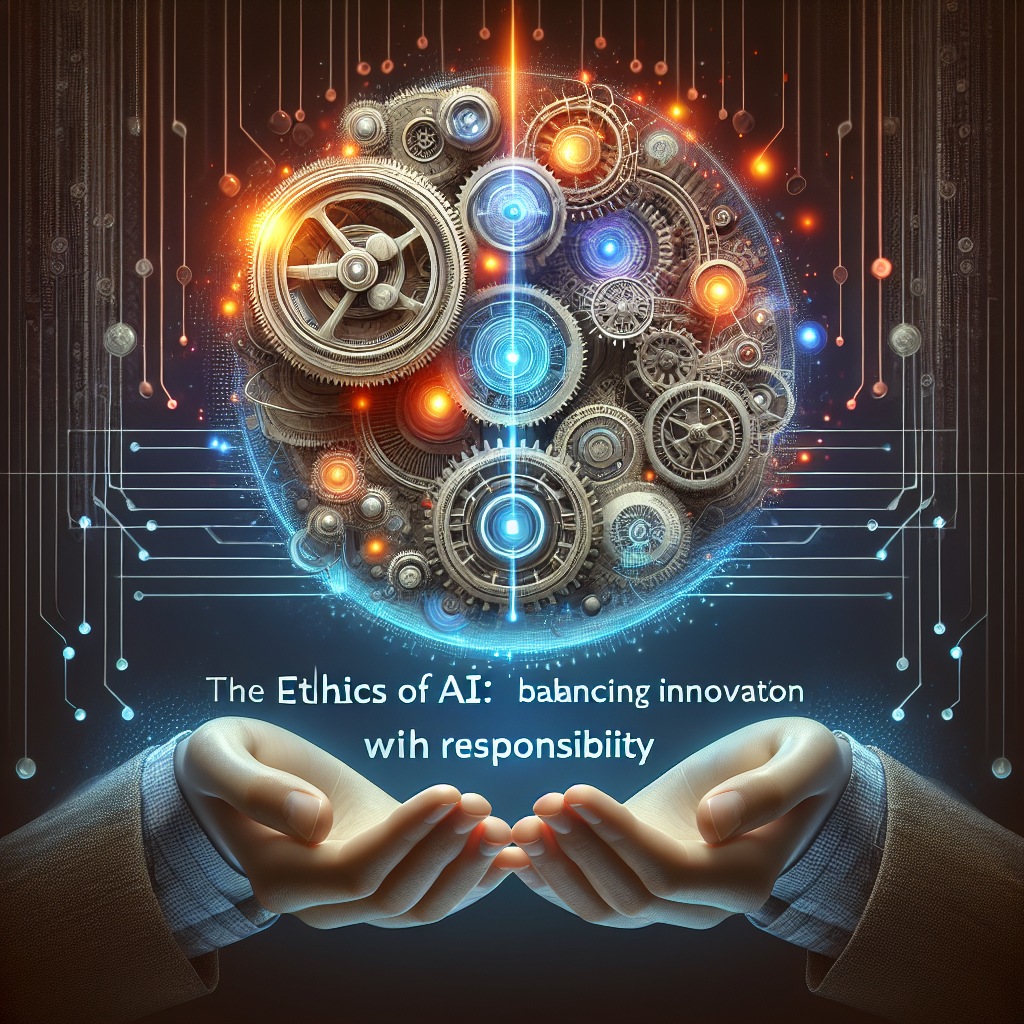The Ethics of AI: Balancing Innovation with Responsibility
In the digital age, artificial intelligence (AI) is not just a technological advance but a revolutionary force that’s reshaping the way we live, work, and interact. From self-driving cars to smart assistants in our homes, AI is pervasive and potent. Yet, as this technology continues to evolve, it brings with it complex ethical questions and challenges that demand thoughtful consideration. The crux of these ethical dilemmas is striking a balance between the exhilarating pace of innovation and the imperative of responsibility.
The Promise of AI
AI’s potential is vast and varied. At its best, AI can lead to groundbreaking innovations in healthcare, such as personalized medicine and predictive analytics, that promise better patient outcomes. In business, AI can enhance productivity, optimize supply chains, and drive new consumer insights. In social contexts, AI has the potential to improve educational outcomes through personalized learning tools and to create smarter, more responsive city infrastructures.
However, the promise of AI comes with great responsibility. This responsibility is multifaceted, involving the ethical design, deployment, and use of AI systems that prioritize human well-being and fairness.
The Ethical Challenges
-
Bias and Fairness: One of the most significant ethical challenges is ensuring that AI systems are free from biases. Since AI models are trained on data, they can inadvertently perpetuate existing societal biases if not carefully managed. This can lead to discriminatory outcomes in critical areas like hiring, lending, and law enforcement.
-
Privacy and Surveillance: AI systems often rely on massive amounts of data to function effectively. This raises concerns about user privacy and the potential for surveillance. Without stringent data protection measures, AI technologies can intrude into personal spaces and infringe upon individuals’ privacy rights.
-
Accountability and Transparency: As AI systems become more complex, understanding how they make decisions can become increasingly opaque, leading to accountability challenges. Who is responsible when an AI-driven vehicle is involved in an accident, or when an algorithm unfairly denies someone a loan? Creating transparent systems that allow for auditability and accountability is crucial.
-
Autonomy and Control: With AI making more decisions on behalf of humans, there is a real concern about the erosion of human autonomy. Systems that overly rely on automation can diminish human oversight, leading to potential abuses or failures that could have been avoided with human intervention.
- The Impact on Employment: Automation driven by AI is transforming industries, potentially displacing workers and altering job markets. Ethical considerations must include strategies for workforce transition, retraining, and ensuring that the economic benefits of AI are widely shared.
Balancing Innovation with Responsibility
To address these ethical challenges, a multi-stakeholder approach is needed:
-
Regulation and Governance: Governments worldwide are beginning to recognize the need for robust frameworks to govern AI development and use. These regulations must be flexible enough to foster innovation while ensuring that ethical standards are upheld.
-
Industry Self-Regulation: Companies deploying AI solutions have a pivotal role in self-regulating by establishing best practices, including ethical guidelines and transparency measures, to mitigate potential harms.
-
Interdisciplinary Collaboration: Collaboration between technologists, ethicists, policymakers, and the public is essential to create AI systems that are aligned with societal values and norms.
- Public Engagement and Education: Educating the public on AI capabilities and limitations, as well as involving them in discussions about its use, is crucial in fostering a society that is prepared for the AI-driven future.
Conclusion
The path forward requires a delicate balancing act—promoting the innovation that AI promises while ensuring that it is developed and deployed responsibly. This balance is not merely an ethical imperative but a necessity for establishing trust and ensuring that AI technologies contribute positively to society. As AI continues to advance, ongoing vigilance and proactive policymaking will be essential to harness its benefits while safeguarding human rights and dignity.














Leave feedback about this
You must be logged in to post a comment.